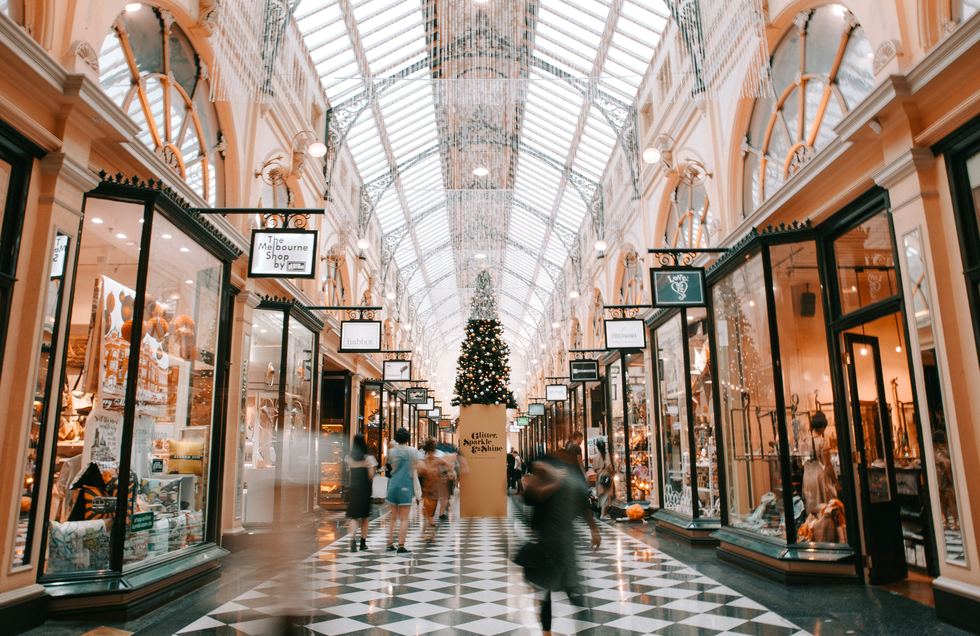In case you missed it, Barneys New York made headlines this past February when it announced that it was opening its very own cannabis pop-up shop at its Beverly Hills flagship location; making it the first major retailer to introduce a whole section devoted to cannabis lifestyle and wellness.
Dubbed “The High End,” the head shop resides in a 300-square-foot space on the fifth floor of the luxury department store on Wilshire Boulevard. Partnered with Los Angeles-based cannabis company Beboe, The High End features top-shelf cannabis and vape pens as well as all types of upscale smoking accessories and CBD products.
“Barneys New York has always been at the forefront of shifts in culture and lifestyle, and cannabis is no exception,” said Daniella Vitale, Chief Executive Officer & President, Barneys New York, in a press release. “Many of our customers have made cannabis a part of their lifestyle, and The High End caters to their needs with extraordinary product.”
When news spread that the luxury retailer was getting into the weed game, our office was quickly inundated with questions about how exactly Barneys was able to pull this off. In 2017, Beverly Hills banned all cannabis stores (with an exception for medical cannabis deliveries to patients only). So, how is it that Barneys was able to circumvent local regulations and set up a pot shop in Beverly Hills without a state or local license?
Well, technically, Barneys isn’t doing anything that requires a state or local license. Contrary to what headlines led many people to believe, Barneys isn’t selling any actual cannabis products in-store. The cannabis products displayed at the High End are only “dummy” displays which do not contain any cannabis. If customers want to purchase actual cannabis products, on-site Beboe sales reps will help customers at The High End use an iPad to order cannabis for delivery through Beboe’s white glove delivery service, Emjay. Emjay will then bring purchases to customers within 15 to 35 minutes anywhere in the Beverly Hills area.
Is this off-site delivery model for pop-up shops legal? Yes. I’ll explain why:
On January 16th, California’s Office of Administrative Law (OAL) approved the final rules and regulations governing the state’s cannabis industry, a little over a year after legal recreational sales went into effect. One of the state rules that were cemented into law by OAL gives licensed deliveries free rein to deliver cannabis almost anywhere in California, even into cities and counties that have banned it. Although Proposition 64 said local governments (like Beverly Hills) had the authority to ban non-medical cannabis business, state regulators pointed to the Business and Professions Code, which states that local governments “shall not prevent delivery of cannabis or cannabis products on public roads” by a licensed operator, meaning that millions of Californians who were previously prohibited from ordering weed to their homes now can — at least in the eyes of the state. The new regulations went into effect immediately on January 16th, which made California the first and only state to legalize home delivery service across all municipalities.
If you’re a licensed delivery service and want to mimic the Barneys model by delivering to customers at a certain off-site location (i.e., a music festival or a concert), here’s some advice on how to stay legal:
- Products should not be available to purchase on-site.
- Display products should not contain any actual cannabis.
- On-site representatives may educate customers on product offerings and assist customers with ordering products for off-site delivery (i.e., with the use of an iPad).
- Deliveries must be made to a physical address in California.
- Deliveries cannot be made to: (1) an address located on publicly owned land, (2) a building leased by a public agency, or (3) a K-12 school, day care center or youth center.
- Delivery vehicles can only carry a maximum of $5,000 worth of marijuana at any time, and must be free of any markings which indicate they’re transporting weed “to reduce the risk” of “theft or other crime.”
Disclaimer: This article has been prepared and published for informational purposes only and is not offered, nor should be construed, as legal advice.
Related Links:

